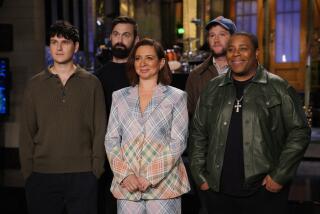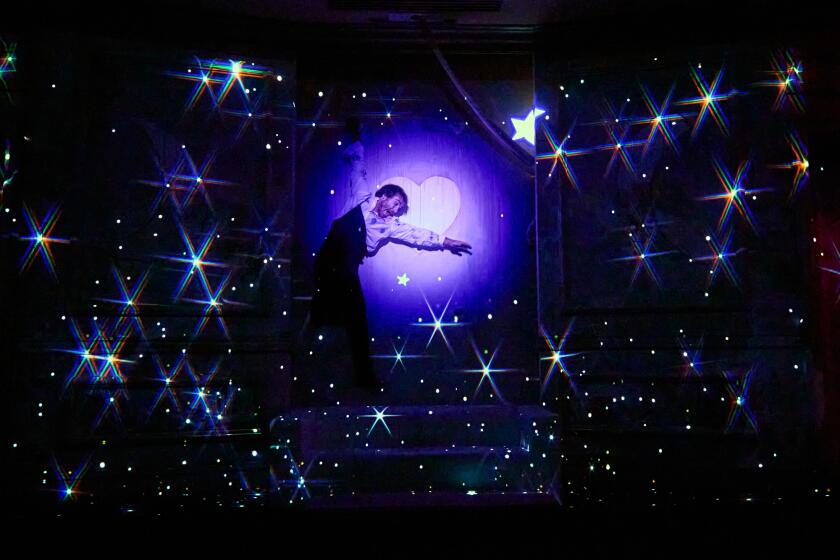Cohesive Concert by Moscow Orchestra
Founded in 1956 by violist Rudolf Barshai, the Moscow Chamber Orchestra became one of the minor legends of the Soviet arts industry. Friday, the ensemble--led since 1991 by the American pianist Constantine Orbelian--touched on some of its history in a compact, virtually unheralded concert at the Cal State Northridge Performing Arts Center.
This is the orchestra that gave the premiere of Shostakovich’s Fourteenth Symphony, and the centerpiece of the program Friday was that composer’s Concertino, Opus 94. Originally a substantial piano duet, the Concertino has been quite idiomatically arranged into an effective one-movement concerto for solo piano and small orchestra by Julia Zilberquit. Her only glaring deviation from Shostakovich’s style here is the rather too grand size of the cadenza she interpolated just before the end.
The Moscow-born, Juilliard-trained Zilberquit has recorded her version of the Concertino with the Moscow Virtuosi--ironically, the band that has probably supplanted the MCO as the city’s premiere chamber orchestra--and she was on hand Friday to be a technically and interpretively authoritative protagonist. Orbelian and his orchestra accompanied tidily.
The mostly youthful ensemble really came into its own with five of Prokofiev’s “Visions Fugitives,” in expressive string arrangements by Barshai. The orchestra had sounded tentative in its opener, Arensky’s Variations on a Theme by Tchaikovsky, but in Tchaikovsky’s own Serenade for Strings it played with cohesive impact. Orbelian is an undemonstrative conductor and his players often seemed to look to concertmaster Dmitry Khakhamov for cadential articulation; however achieved, the results were assured and communicative.
In encore Orbelian and Co. offered bold, lithe Mozart, a quietly soulful Russian folk song, and a rollicking, virtuosic “Yankee Doodle” solo for their second-chair violinist.
More to Read
The biggest entertainment stories
Get our big stories about Hollywood, film, television, music, arts, culture and more right in your inbox as soon as they publish.
You may occasionally receive promotional content from the Los Angeles Times.






